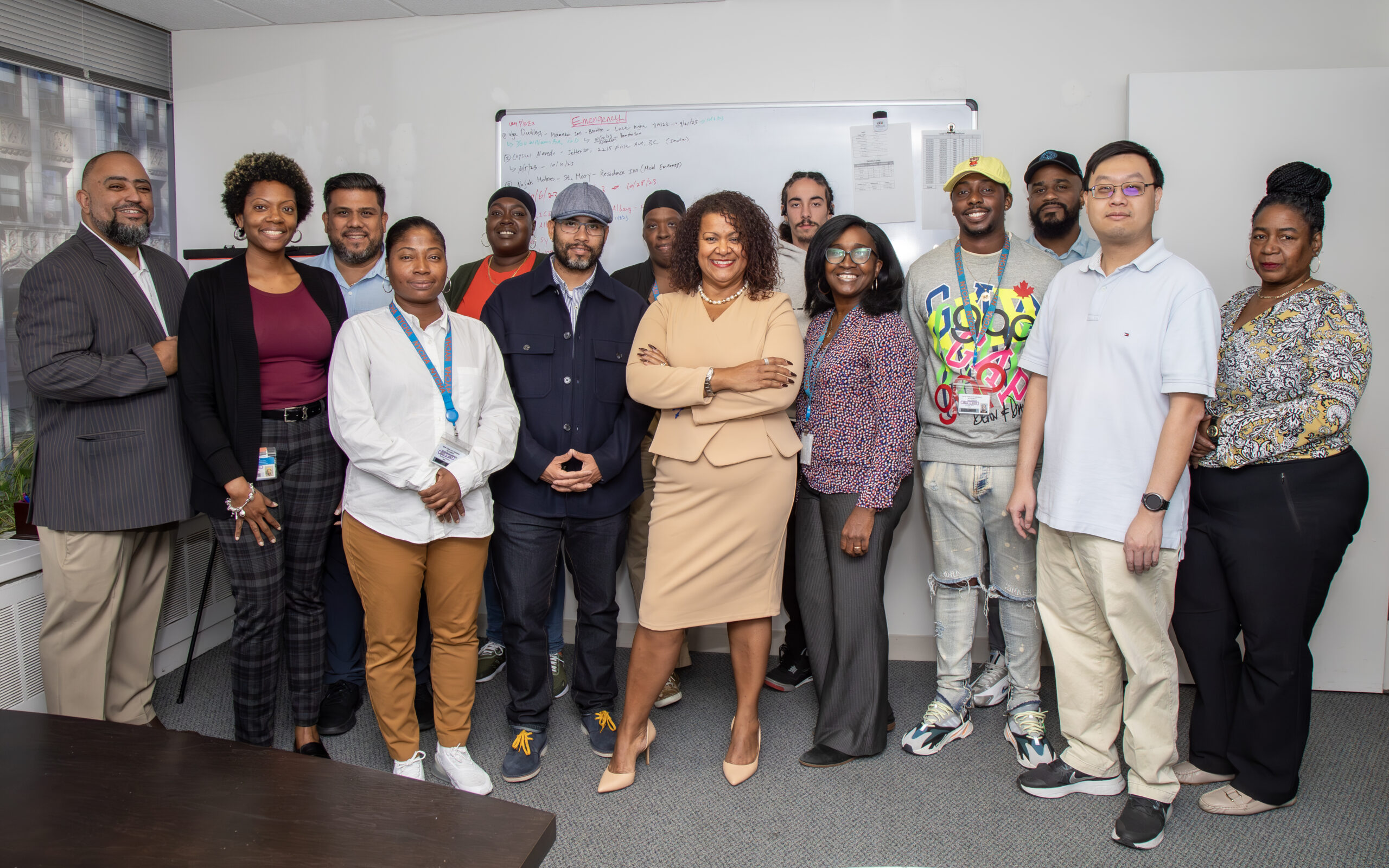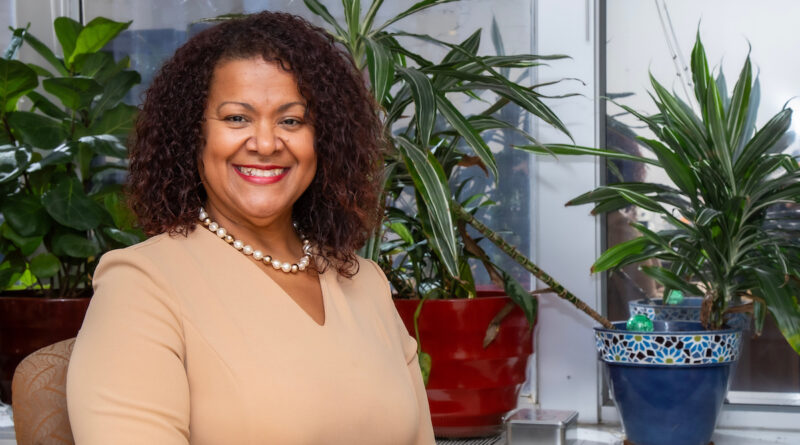Meet Zobeira Martinez, Senior Director of the Resident Relocation Services Department
From a very young age, Zobeira Martinez (known as Zoby) knew she wanted to help people – and continue her family’s tradition of paying forward the kindness and support they received after relocating to the United States from the Dominican Republic.
As a college student living in NYCHA’s Hope Gardens development, Ms. Martinez had some ideas about how she could be of help to her community. She considered becoming a lawyer or a teacher. But her first work opportunity brought the solution to her dilemma.
“The social service world kind of came to me when I had the opportunity to volunteer in a community center,” Ms. Martinez said. “Working with the kids and the seniors was really fulfilling to me.”
So, instead of applying to law school, she followed her newly discovered passion and applied to Hunter College’s School of Social Work.
Decades later, Ms. Martinez has served in various roles at NYCHA, including Chief of the Emergency Transfer Unit and Domestic Violence Aftercare Services and, until recently, as the Assistant Director of the Management Services Department overseeing the Tenancy Administration and Reasonable Accommodations Unit. She was also one of the mentors in NYCHA’s first-ever Coaching and Mentoring Leadership Academy. This September, Ms. Martinez started a new position as Senior Director of the Resident Relocation Services Department (RRSD).
“Zoby is profoundly committed to serving the needs of vulnerable and diverse populations,” said Sylvia Aude, Senior Vice President for Public Housing Tenancy Administration. “She has extensive expertise in critical areas such as aiding victims of domestic violence, handling crises, addressing elder abuse, and supporting those with medical and disability needs. Throughout her career, Zoby has built strong interagency partnerships, organized effective interdepartmental workgroups, and established valuable connections with stakeholders. I’m very fortunate to have had Zoby on my team for many years. She has been, and continues to be, a great asset to NYCHA!”
In addition to assisting residents with planned relocations for work such as elevator modernization or asbestos and mold remediation, RRSD is also responsible for moving residents into temporary and hospitality units, as well as hotels, during emergencies such as fires and floods.
“The kinds of relocation are many, but most are unplanned,” explained Ms. Martinez.
For unplanned relocations like the fire outbreak at Sotomayor Houses this summer, Ms. Martinez said the RRSD worked to move all the affected families out of their apartments so that their apartments could be restored. Some have since returned to their apartments “while others are still in temporary units waiting for their apartments to be rehabilitated. A RRSD team member is assigned to the affected location to ensure that all coordinating efforts are completed, and families have the support they need and understand the process of relocating and returning to their apartments.”
The department works closely with other NYCHA departments such as Applications and Tenancy Administration to identify vacant apartments which can serve as temporary homes for families that need to be relocated. “We also work closely with Property Management, Healthy Homes, the Chief Operating Officer’s office, and the Law Department,” Ms. Martinez noted. “This collaborative effort ensures continuity of service and proper follow-up so that families are placed in safe and secure homes.”
Ms. Martinez considers her new role an exciting challenge. Throughout her years at NYCHA, she has learned a lot from her hardworking and knowledgeable supervisors, including Lillian Harris and Sylvia Aude. But she has also taken the initiative to learn on her own “because sometimes you get an issue and you’re like, what’s the policy on that? The Forms and Reference Library on Connect is my best friend; all NYCHA-related policies and forms reside here – staff can access information on occupancy standards, annual recertification, transfers, maintenance, elevators, and much more. There’s so much to learn, and I’m still learning.”
She’s impressed with the work of her colleagues in her department. Her main priority is to develop structures that will harmonize its operations and help staff learn more about the systems related to tenancy (such as Siebel and Maximo), which they can use to access information that will help them serve residents: “Ultimately, we will continue to work together to ensure that tenants impacted are served and assisted appropriately and ensure a seamless relocation.”








